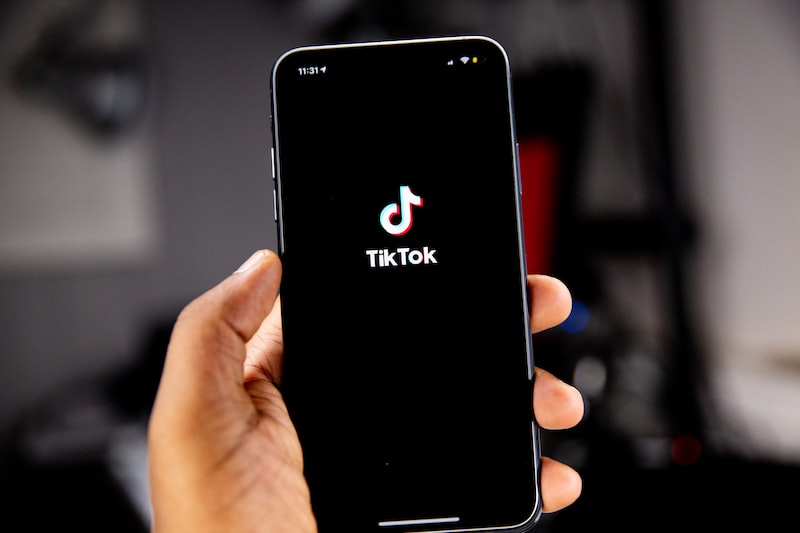Table of Contents
Have you ever wondered why schools start so early in the morning? It’s a question that has puzzled many students, parents, and even educators. The truth is, there are several factors that contribute to the decision of setting school start times. Let’s delve into the reasons behind this early bell.
One crucial aspect to consider is the biological clock of teenagers. Research has shown that during adolescence, there is a shift in their sleep patterns. Teenagers tend to naturally stay up later at night and struggle to wake up early in the morning. This phenomenon, known as delayed sleep phase syndrome, is influenced by changes in hormone levels. Therefore, starting school later would align better with their natural sleep-wake cycle, leading to improved alertness and overall academic performance.
Another factor influencing school start times is transportation. Many schools operate on tight bus schedules, where the same buses are used for multiple routes, serving different grade levels. To accommodate these logistics, elementary schools often begin earlier, followed by middle and high schools. Synchronizing school start times ensures efficient use of resources and minimizes transportation costs.
Furthermore, extracurricular activities play a significant role in determining school start times. Students participate in sports, clubs, and other after-school programs that require adequate time for practice and meetings. By starting school early, it allows for a more extended afternoon period, providing students with opportunities to engage in these activities without compromising their academic responsibilities.
Additionally, community considerations come into play when deciding school start times. For instance, parents who work early shifts may prefer earlier start times to align with their schedules. On the other hand, families with multiple children attending different schools may appreciate staggered start times to ease logistical challenges. Taking these factors into account contributes to a cohesive community and supports the needs of various stakeholders.
the reasons behind school start times are multifaceted. From considering the biological sleep patterns of teenagers to accommodating transportation logistics and extracurricular activities, several factors shape this decision. By understanding these reasons, we can foster an educational environment that optimizes learning, supports student well-being, and meets the needs of the community as a whole.
Rise and Shine: New Research Unveils the Impact of Early School Start Times on Adolescent Health
Are you a
parent who struggles to get your teenager out of bed in the morning? Well, you’re not alone. Waking up early can be a real challenge for adolescents, and it turns out that there’s more to it than just grogginess. Recent research has shed light on the impact of early school start times on the health of teenagers, and the findings are eye-opening.Imagine this: your alarm goes off at the crack of dawn, and you drag yourself out of bed feeling tired and disoriented. Now, multiply that feeling by five, because that’s what many teens experience day after day. Early school start times force them to wake up when their natural circadian rhythm is still urging them to sleep. This misalignment between their internal clocks and external demands can have serious consequences.
One study conducted by sleep experts found that insufficient sleep due to early school start times is linked to a variety of health issues among adolescents. These include increased rates of obesity, depression, and substance abuse. Lack of sleep also affects cognitive functions such as memory, attention, and problem-solving abilities. It’s like trying to run a marathon with one leg tied behind your back – not an easy feat.
To put it into perspective, imagine a car running on an empty tank. It might sputter along for a while, but eventually, it will come to a screeching halt. Similarly, when teenagers don’t get enough sleep, their bodies and minds suffer. They become more prone to accidents, struggle to concentrate in class, and their overall academic performance takes a hit.
But here’s the good news: there’s a growing movement advocating for later school start times. Several studies have shown that pushing back the first bell can lead to significant improvements in adolescent health and well-being. When schools have shifted their schedules to accommodate teenagers’ sleep needs, they’ve witnessed decreased rates of depression and substance abuse, as well as improved academic performance.
Breaking the Silence: Students Speak Out About the Challenges of Early Morning Classes

Introduction:
Have you ever wondered why students show up to class with droopy eyes and yawns? It’s not just laziness or late-night parties – early morning classes can be a real struggle. In this article, we delve into the voices of students who have experienced the challenges of starting their day bright and early. Prepare to uncover the hidden realities that these brave individuals face and gain insights into how early morning classes affect their academic performance.
The Reality of Sleep Deprivation:
When the alarm clock shrills at the crack of dawn, it takes a herculean effort for some students to crawl out of bed. Sleep deprivation is a common issue faced by many due to early morning classes. The lack of sufficient rest affects concentration, memory retention, and overall cognitive abilities. Imagine trying to absorb complex concepts while battling heavy eyelids – it’s no wonder students find it challenging to grasp information during those 8 a.m. lectures.
Energy Levels and Engagement:
Early morning classes often mean encountering energy levels that are still in hibernation mode. Students report feeling sluggish, making it harder for them to actively participate in discussions. The brain needs time to fully wake up, and when it hasn’t had a chance to do so, it becomes more difficult to engage with the material being taught. This lack of engagement can hinder learning and prevent students from reaching their full potential.
The Vicious Cycle:
It’s a vicious cycle that begins with dragging oneself out of bed, followed by struggling through class, and then desperately needing a nap by mid-morning. The fatigue experienced throughout the day negatively impacts productivity and motivation. Students may find themselves caught in a loop of exhaustion, affecting their ability to complete assignments and study effectively.
Seeking Solutions:
So how can students overcome the challenges of early morning classes? Gathering insights from those who have successfully managed this hurdle, some suggest establishing a consistent sleep schedule and creating a morning routine that promotes alertness. Others find solace in energy-boosting strategies like exercise or consuming nutritious breakfasts. While it may take trial and error to find what works best for each individual, acknowledging the issue is the first step towards finding a solution.
Conclusion:
The voices of students facing the challenges of early morning classes are finally being heard. By shedding light on their experiences, we hope to raise awareness about the impact of early morning schedules on academic performance. It’s essential for educators and institutions to consider these perspectives when designing course timetables. Together, we can strive to create an environment that supports students’ well-being and maximizes their learning potential.
The Science of Sleep: Experts Discover Optimal School Start Times for Student Achievement
Do you often find yourself struggling to wake up in the morning, feeling groggy and drowsy throughout the day? You’re not alone. Many students face this daily battle, unaware of one crucial factor that could significantly impact their academic performance: sleep. Recent research by sleep experts has shed light on the optimal school start times that can enhance student achievement.
Imagine starting your day feeling refreshed and energized, ready to absorb knowledge like a sponge. Well, science suggests that it’s not just wishful thinking. A growing body of evidence indicates that aligning school start times with teenagers’ natural sleep patterns can have a profound positive impact on their academic success.
Teenagers are biologically wired to stay up later and wake up later than younger children or adults. This is due to shifts in their internal body clock, or circadian rhythm. While the exact timing varies, many experts agree that teenagers’ optimal sleep window begins around 11 p.m. and lasts until 8 a.m.
Unfortunately, most traditional school schedules fail to accommodate these natural sleep patterns. Early morning classes force students to wake up before their bodies are fully rested, leading to decreased alertness, reduced cognitive function, and even higher rates of mental health issues.
Recognizing the importance of sleep for academic achievement, some schools have started implementing later start times with impressive results. Students who benefited from these changes reported improved grades, better attendance, and reduced tardiness. Moreover, behavioral issues and instances of depression and anxiety also showed a decline.
Shifting school start times may seem like a simple solution, but it requires careful planning and coordination. Schools must consider transportation logistics, extracurricular activities, and parental arrangements. However, the potential benefits far outweigh the challenges, making it a change worth pursuing.

the science of sleep highlights the significance of aligning school start times with teenagers’ natural sleep patterns. By allowing students to get the optimal amount of rest, schools can unlock their full potential for academic achievement. It’s time to rethink traditional schedules and prioritize the well-being and success of our future generation.
Late Nights, Early Mornings: How Teenagers’ Sleep Habits Clash with Early School Start Times
Are you a parent of a teenager who struggles to get enough sleep due to early school start times? You’re not alone. The clash between teenagers’ sleep habits and the early morning routines imposed by schools is a topic that deserves attention. Let’s delve into the intricacies of this issue and explore why it’s essential to consider adjusting school schedules.
Teenagers naturally experience a shift in their circadian rhythm during puberty, making them more prone to staying up later at night and struggling to wake up early in the morning. This biological change can lead to insufficient sleep, affecting their overall well-being and academic performance.
Early school start times exacerbate these challenges. Imagine having to rise before dawn, feeling groggy and disoriented, only to sit through demanding classes. It’s like asking a marathon runner to sprint without warming up properly. The mismatch between teenagers’ internal clocks and school schedules disrupts their sleep patterns and hampers their ability to concentrate and retain information.
Lack of quality sleep has far-reaching consequences. Sleep deprivation affects mood, cognitive abilities, and even physical health. It can lead to increased stress levels, irritability, and difficulty managing emotions. In the long run, chronic sleep deprivation may contribute to depression, obesity, and weakened immune systems.

So, what can be done to address this issue? One potential solution is to adjust school start times to better align with teenagers’ natural sleep patterns. By allowing them to get sufficient rest, schools can promote optimal learning conditions. Several studies have shown positive outcomes after implementing later start times, including improved attendance, better grades, and reduced rates of tardiness and disciplinary issues.

While changing school schedules may pose logistical challenges, the benefits for teenagers’ well-being and academic success should be taken seriously. It’s time for educators, parents, and policymakers to engage in open dialogues and explore feasible solutions to ensure that our teenagers can thrive both academically and personally.
the clash between teenagers’ sleep habits and early school start times is a pressing issue that requires attention. By acknowledging the biological changes adolescents undergo during puberty and considering adjustments to school schedules, we can provide an environment that supports their overall well-being and academic achievement. Let’s work together to create a brighter future for our teenagers—one that starts with a good night’s sleep.





